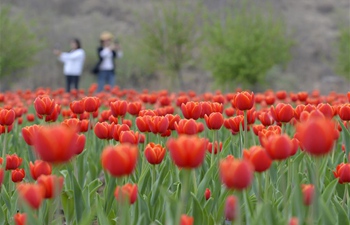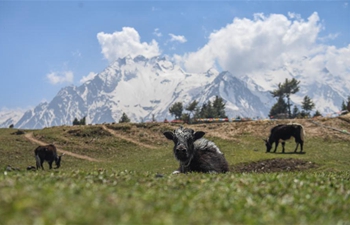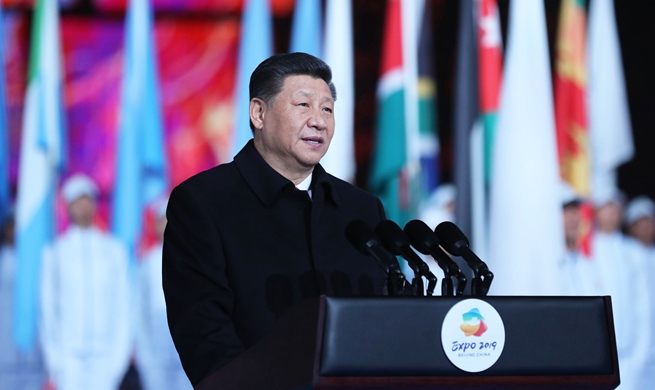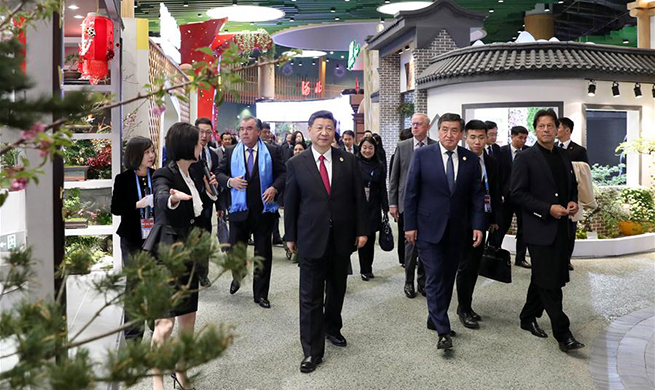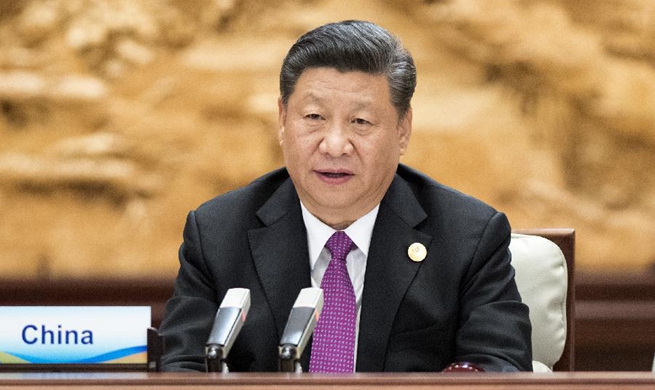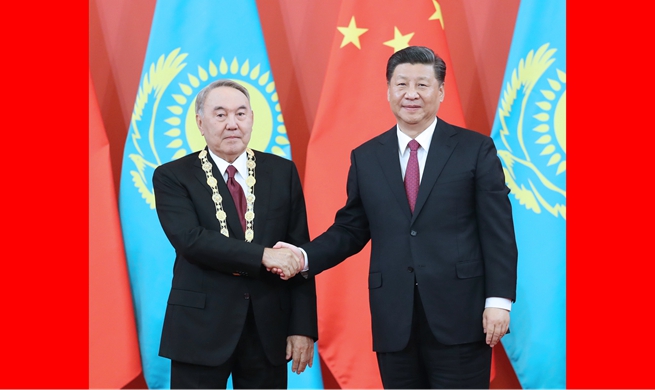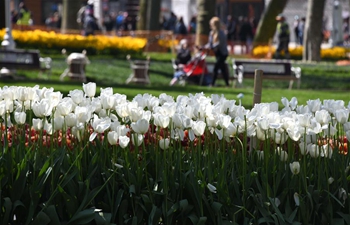by Pankaj Yadav, Zhao Xu
UDAIPUR, India, April 29 (Xinhua) -- India is witnessing its fourth phase of general elections on Monday. India's western state Rajasthan's 13 parliamentary constituencies (out of the total 25) are among the 72 constituencies across nine states where polling process is going on Monday.
Over 130 million voters will decide the fate of 961 candidates in Monday's polling. Over 140,000 polling booths are in place for smooth conduct of polls.
A maximum of 17 parliamentary constituencies are seeing polling in southwestern state of Maharashtra, 13 each in Rajasthan and northern state of Uttar Pradesh, eight in eastern state West Bengal, six in central Madhya Pradesh, five in eastern Bihar, three in eastern Jharkhand, and one in Indian-controled Kashmir.
Udaipur, known as the City of Lakes, is situated in southern parts of the state bordering another western state Gujarat and is famous for various royal battles, valor in recent history, besides the rich art, culture and folk dances forms which makes it a perfect tourist destination.
Mainly dominated by various tribal communities, the parliamentary constituency is reserved for the Scheduled Tribes (STs), which means candidates belonging to an ST community can contest election to represent this area in the parliament. The STs have been provided a special provision in the Indian constitution which guarantees them reservation in higher educational institutions and government jobs.
To understand the nuances of Rajasthan politics, Xinhua spoke to Prof. Sanjay Lodha, the head of the Political Department at the Mohanlal Sukhadia University in Udaipur. Prof. Lodha is also the state's coordinator of the Delhi-based Centre for the Study of Developing Societies, a research institute which also conducts pre-poll surveys to know the pulse of voters ahead of elections.
According to him, the ongoing 17th parliamentary elections in India are very different from the last one held in 2014. He said the "Modi Wave" which had completely swept several states including Rajasthan, in the last elections, has naturally lost its steam this time, and Modi's BJP is not going to win all the 25 parliamentary constituencies as it did in the last elections.
Last general elections were held when Modi emerged as a very tall figure in Indian politics and the BJP positioned him as an alternative to the then Congress-led United Progressive Alliance (UPA) government. Then he was the chief minister of Gujarat state, and the Gujarat Model of governance and development was much talked about.
"Modi's emergence as a tall leader in Indian politics led to people attaching their big expectations from him, particularly in terms of employment generation, poverty eradication and overall growth in living standard. But, during the past five years, there has been no major change on these fronts, and people should be voting reflecting their reaction to Modi's success, or failure, in delivering on all these counts," he told Xinhua.
However, he added, the latest trend in Indian politics has witnessed people voting on the basis of "emotive issues" and not on real issues like health, education, employment and economic development. "Modi is such a figure who has tremendous oratory skills combined with a perfect body language which infuses nationalism and patriotism in the audience which, subsequently, gets converted into votes. So, people vote on emotive issues like nationalism and patriotism, rather than rating the successes or failures of the Modi government," added the political expert.
Over the past five years, main opposition party Indian National Congress (INC) has been able to resurrect itself in Rajasthan and is the current ruling party in the state. "Hence, the question of BJP repeating its last performance (as in 2014) doesn't arise. In our pre-poll survey, we found that the INC should be able to win eight to 10 constituencies and the rest 15 to 17 will go to BJP," said Prof. Lodha.
However, he added, one should not forget that the BJP continues to be a strong-cadre based party, unlike the INC, and its votes-share in Rajasthan has been continuously increasing in every election since 1993.
He also pointed out that unlike last general elections, the BJP seems to be losing around 80 to 100 parliamentary constituencies this time, and doesn't seem to have the backing of strong alliance partners as it had in 2014.
"The state of Uttar Pradesh where the BJP won 71 constituencies in 2014, seems to be giving the BJP its biggest loss, and the party seemingly would not be able to make up this loss from other states, particularly in north India where the BJP already touched the peak in 2014."
Prof. Sitaram Chaudhary, who retired from the Maharana Pratap University of Agriculture and Technology in Udaipur, also said that the BJP would not be able to repeat its last parliamentary performance (as in 2014) in Rajasthan state.
According to him, the BJP might perform well in south Rajasthan's 13 constituencies which are witnessing polls on Monday, but the rest of 12 constituencies are dominated by the farming communities which felt the brunt of agrarian-crisis over the past five years. "Hence, the INC seems to be gaining hugely in north Rajasthan which will witness polling on May 6," he added.
Bhupendra Paliwal, a cab driver in Udaipur, however, said that the BJP still continues to be on a strong footing and would win handsomely in Rajasthan, "though not all the constituencies as it won in 2014."

